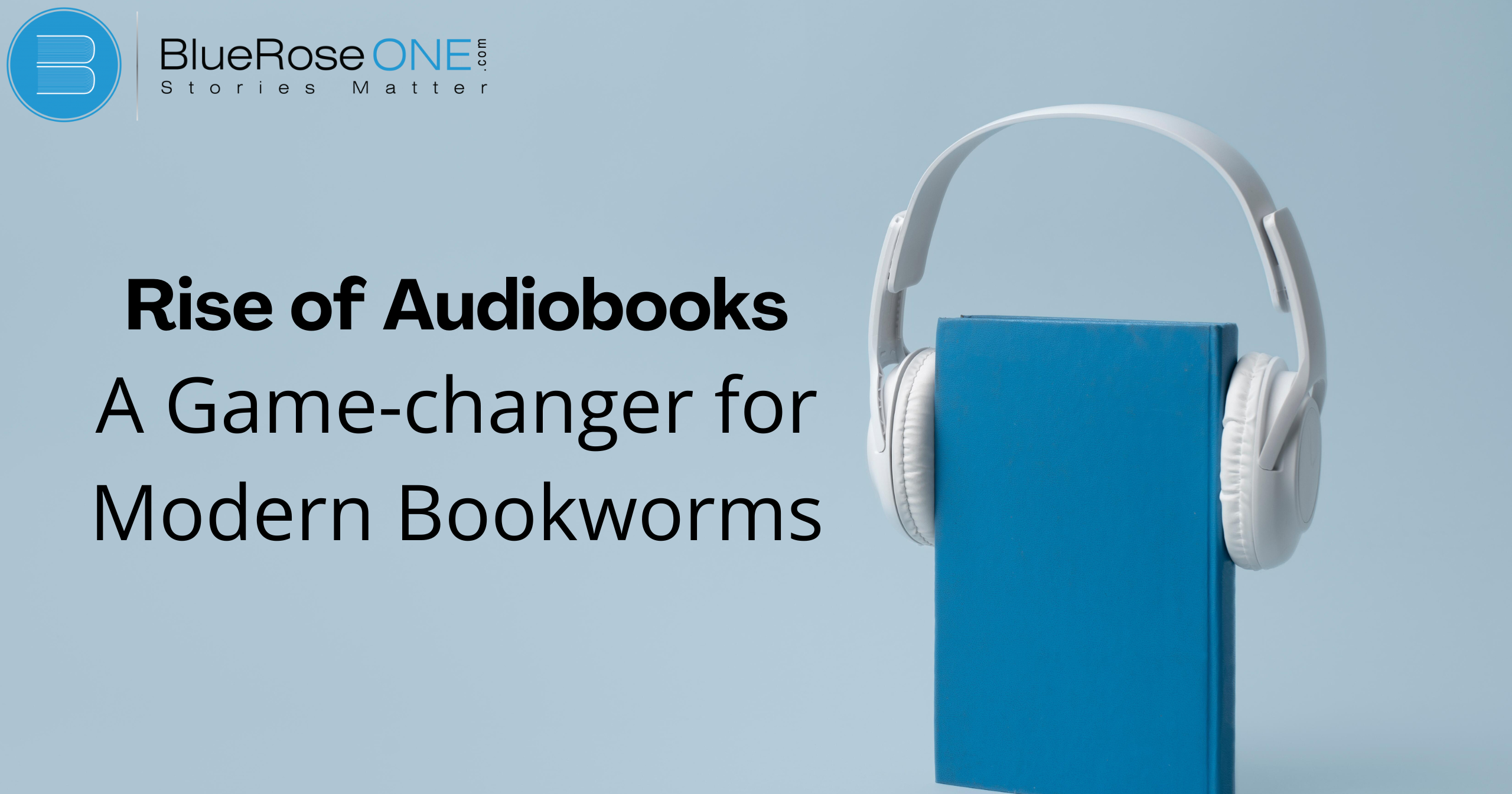Introduction
Audiobooks have become a major influence in the literary world in recent years, completely changing how people read. After being viewed as a niche market, audiobooks are now a major player in the publishing industry, appealing to a wide range of readers. This article explores the phenomena of audiobooks, looking at their historical development, advantages, difficulties, and potential future applications.
Historical Evolution
The concept of audiobooks traces back to the early 20th century when phonograph records enabled the recording and distribution of spoken-word content. However, it wasn’t until the advent of cassette tapes and CDs that audiobooks gained widespread popularity. With the rise of digital technology, audiobooks became easily accessible through online platforms and mobile devices, further fueling their growth.
Convenience and Accessibility
One of the key advantages of audiobooks is their unparalleled convenience. Unlike traditional books, which require dedicated time for reading, audiobooks allow listeners to enjoy literature while engaged in other activities such as commuting, exercising, or household chores. This flexibility makes audiobooks especially appealing to individuals with hectic schedules or those who struggle to find time for reading.
Moreover, audiobooks enhance accessibility for visually impaired individuals, providing them with an alternative means of experiencing literature. Through narration and audio descriptions, audiobooks make storytelling inclusive and accessible to a broader audience.
You may also like: Top 10 Best Biographies of All Time
Narration and Performance
The skill of narrating lies at the heart of audiobooks’ attractiveness. With their emotive delivery, talented narrators capture the subtleties of people and places, bringing stories to life. Talented narrators provide an immersive experience that goes beyond printed words, drawing listeners into the story and enabling complete immersion.
Voice actors are another common component in audiobooks, which enhances the storytelling experience even further. These performances take audiobooks from being just readings to engaging performances, adding dialects and accents as well as dramatic interpretations.
Multitasking and Productivity
Audiobooks enable multitasking, allowing individuals to make the most of their time. Whether commuting to work, exercising at the gym, or completing household chores, listeners can seamlessly integrate audiobooks into their daily routines. This multitasking capability enhances productivity by transforming otherwise mundane activities into opportunities for personal enrichment.
By listening to audiobooks while performing routine tasks, individuals can maximize their time efficiency and stay mentally engaged throughout the day. This multitasking approach enables them to consume more literature than they would through traditional reading alone.
Expanding Market
Recent years have seen an exponential growth in the audiobook sector, driven by both rising demand and advances in technology. Audiobooks appeal to readers of all ages and backgrounds because they offer a wide range of genres and titles that suit a variety of interests and tastes.
A further benefit of the growth of digital platforms and subscription-based services is the increased accessibility of audiobooks. Audiobooks provide something for everyone, ranging from best-selling novels to classic literature and self-help manuals, thereby promoting the democratisation of reading.
You may also like: Unlocking Success: How to Sell Books Online Effectively
Complementary to Traditional Reading
While audiobooks offer undeniable advantages, they are not intended to replace traditional reading. Instead, audiobooks complement conventional reading practices, providing an alternative means of consuming literature. Many readers enjoy the tactile experience of holding a book and savoring the written word, while also appreciating the convenience and versatility of audiobooks.
By incorporating both formats into their reading habits, individuals can enjoy the benefits of each medium. Whether curled up with a paperback or listening to an audiobook on the go, readers can tailor their literary experiences to suit their preferences and lifestyle.
Educational Applications
Audiobooks have been popular in educational settings as well as for leisure reading, adding auditory stimulation to the learning process. Audiobooks help children of all ages strengthen their literacy, language skills, and understanding abilities in the classroom.
In order to give children with learning difficulties or reluctant readers access to literature in a way that works for them, teachers frequently utilize audiobooks. Teachers can help children develop a love of reading and literacy by incorporating audiobooks into their lesson plans.
Technological Innovations
Advancements in technology have transformed the audiobook landscape, making it easier than ever for readers to access their favorite titles. From smartphones and tablets to smart speakers and connected devices, audiobooks are compatible with a wide range of platforms and devices, allowing listeners to enjoy their favorite books anytime, anywhere.
Furthermore, technological innovations such as immersive audio and interactive features enhance the audiobook experience, blurring the line between literature and multimedia entertainment. These innovations cater to the evolving preferences of modern readers, ensuring that audiobooks remain a relevant and engaging form of storytelling.
You may also like: Print on Demand vs Traditional Publishing: Which is Right for you?
Community and Social Aspect
Audiobooks not only provide individual enjoyment but also foster a sense of community among readers. Online platforms and social media channels enable listeners to connect with like-minded individuals, sharing recommendations, discussing favorite books, and participating in virtual book clubs.
The shared experience of listening to audiobooks creates bonds among listeners, sparking conversations and debates about plot twists, character development, and thematic elements. This sense of camaraderie enriches the reading experience, turning it into a communal activity that transcends geographical boundaries.
Cultural Impact
The popularity of audiobooks has had a significant effect on literary culture, changing how people create, listen to, and share stories. Literature is now more accessible to a wider range of listeners worldwide thanks to audiobooks, which have democratized access to it.
In addition, audiobooks have influenced the pacing, structure, and delivery of stories in a variety of media, shaping contemporary storytelling styles. The growth of audio-focused material is indicative of the influence of audiobooks on podcasts and streaming services.
you may also like: Find the Benefits of Reading Books Online: Beyond the Pages
Challenges and Criticisms
Even with all of its advantages, audiobooks are not without problems and detractors. Some readers contend that there might be wide variations in narrator quality, which negatively affects how much they like the book. The authenticity of the reading experience when reading audiobooks as opposed to print or digital texts is also a topic of discussion.
Furthermore, problems like truncated versions, mispronounced words, and technical difficulties might make listening less enjoyable overall and irritate listeners. But as the audiobook market develops, better manufacturing practices and quality assurance procedures are being used to overcome these issues.
Future Trends
Future prospects for audiobooks seem bright, with more development and innovation expected. The way tales are delivered and consumed is expected to change as audiobooks become more and more ingrained in daily life due to advancements in technology and shifting consumer tastes.
The audiobook market offers countless opportunities for innovation, ranging from tailored suggestions and interactive storytelling to enhanced immersive experiences. The audiobook format will continue to change as readers accept it as a necessary component of contemporary literature, catering to the ever-evolving requirements and tastes of audiences across the globe.
You may also like: How to Make an Impact as a Book Author
Conclusion
In summary, the emergence of audiobooks signifies a paradigm change in the literary industry by providing readers with a vibrant and engaging substitute for print novels. For contemporary bookworms, audiobooks have changed the game by providing unmatched accessibility, ease, and versatility—enhancing their reading experiences and broadening their perspectives.
Audiobooks will continue to be at the vanguard of literary innovation as storytelling and technology develop, drawing listeners in with their gripping stories and immersive performances. Audiobooks enable readers to interact with literature in fresh and engaging ways, whether they are listening on the move or sharing stories with other fans. This ensures that the joy of storytelling endures in the digital age.
Frequently Asked Questions
While both audiobooks and podcasts involve audio content, they differ in terms of format and content. Audiobooks are typically full-length recordings of books, featuring professional narration and often accompanied by sound effects or music. In contrast, podcasts encompass a wide range of audio programs, including interviews, discussions, storytelling, and educational content, which may vary in length and format.
Yes, audiobooks are suitable for readers of all ages, from children to seniors. Many audiobooks are available in various genres and formats, catering to diverse interests and preferences. Children’s audiobooks, in particular, often feature engaging narrations and sound effects to captivate young listeners and promote literacy development.
Yes, audiobooks can enhance language skills by exposing listeners to fluent speech, vocabulary, and pronunciation. Listening to audiobooks can improve listening comprehension, vocabulary acquisition, and pronunciation skills, particularly for second language learners or individuals seeking to improve their language proficiency.
Audiobooks are compatible with a wide range of devices, including smartphones, tablets, computers, e-readers, and dedicated audiobook players. Most audiobook platforms offer apps or software that can be downloaded onto compatible devices, allowing listeners to access their audiobook libraries anytime, anywhere.
Becoming a skilled audiobook narrator requires a combination of talent, training, and experience. Many narrators have backgrounds in acting, voiceover work, or public speaking, which provide them with the necessary skills to bring characters to life and engage listeners. Additionally, aspiring narrators can benefit from voice training, acting classes, and workshops to refine their craft and develop their unique storytelling style.















